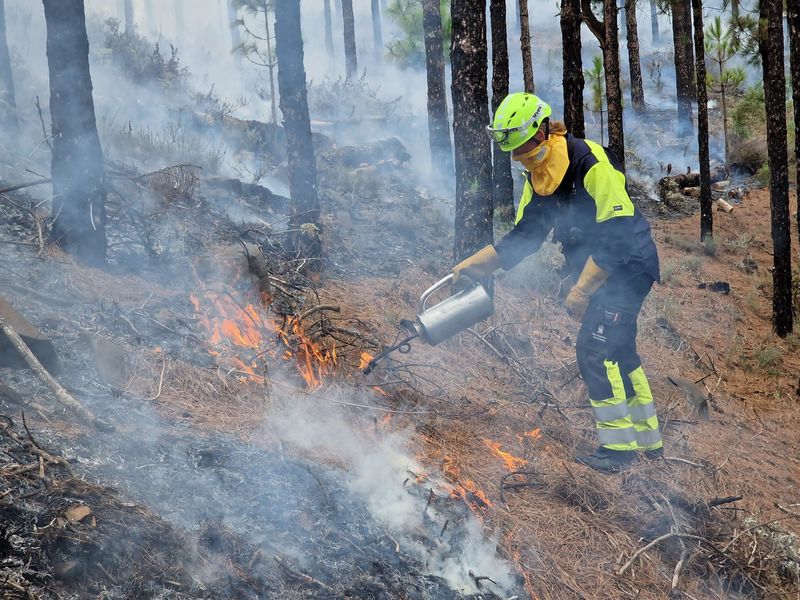Climate change is affecting the frequency, geographic range, and intensity of wildfires. We are facing a global paradigm shift that requires a new learning framework in which to share experiences in fire prevention and extinction. From the knowledge and exchange of local work methodologies, we build knowledge and experiences that will help us to prevent and deal globally with the The EGIF (Equipo de Gestión de Incendios Forestales) program, a collaboration between the Pau Costa Foundation (PCF) and CONAF (Corporación Nacional Forestal) of Chile, aims to provide this framework of common knowledge.
“This is a unique project. We have sent to Chile a team of experts from Bombers de la Generalitat de Catalunya, ANEPC (Portugal) and INFOCA (Andalucía) who, under the coordination of the PCF, have integrated personnel from CONAF and regional brigades. And we have done it to exchange work methodologies before an emergency occurs and not to respond to a specific emergency” says Juan Caamaño, coordinator of the program and head of PCF’s knowledge transfer area. Along with Caamaño, Jordi Pagés and Felipe Borderas have also joined the EGIF program coordination team.

EGIF has been a three-month technical assistance program, which began in January 2022, during the fire campaign in Chile. The goal of the program is to design a knowledge management system in which experiences with forest fires become elements of experience and training, in order to empower and make CONAF grow. During these first three months, work has been done on aspects such as the organization and management of a forest fire emergency; in air operations, given the increase in air resources in Chile after the 2017 fires; fire analysis and the use of technical fire as a tool for fire prevention and extinction.
“It is about improving the ability to analyze risk and wildfires and translate it into operations on the ground through decision-making. We focus above all on developing skills and abilities always around fire, whether through straw workshops, prescribed fire or actions in the event of a specific fire. We propose to transform a response scenario into one of learning and exchange. This is precisely the differential point of our EGIF program. It has been crucial to generate bridges of trust that allow the exchange of experiences and work methodologies, around the scene of a forest fire, with highly qualified professionals from different organizations and countries”, adds Caamaño.


Development of skills and abilities through prescribed fire and straw workshops
One of the challenges of any collaborative learning process is finding the right methodology. To this end, it has been essential to identify key people within CONAF and regional fire services to integrate them into the EGIF team. Then, knowledge transfer actions were carried out, in the classroom, but as mentioned, also in the scene of a fire, to work and put knowledge into practice on the ground.
“I have seen that it is possible to bring organizations together in a wildfire environment to exchange knowledge. We have generated an incredible space for exchange. And we have realized that we have already influenced and generated changes,” says Caamaño.


The next step of the EGIF program is the selection and training of key people in CONAF to be instructors in the training plan that is being developed jointly. It is key that every organization has a knowledge management system that allows capitalizing on the experience and knowledge of its professionals. Finally, the idea is to replicate the EGIF program during the 2022-2023 forest fire campaign.
“We have been in incredible fires. In Tierra del Fuego, Magallanes or Valparaíso, where the fires in the urban-forest interface are very complicated and complex. It was a unique experience. The task of coordinating highly professional and expert people has been quite a challenge. It has been perhaps the most complex project I have been on, but it has served to exchange ideas with personnel from Chile, and among us, the team of professionals from the Iberian peninsula”, concludes Caamaño.







